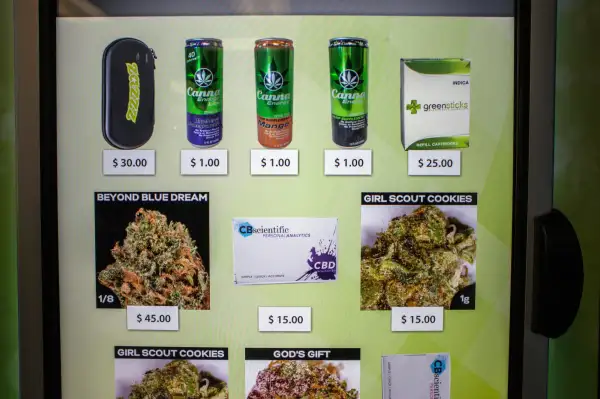Legal Pot Prices Keep Getting Cheaper

One justification for making recreational marijuana legal in Colorado, Washington, and perhaps elsewhere soon is the hope that it will help put an end to the black market, which is unregulated and untaxed and has been known to involve gangs, drug cartels, and crime far beyond the low-level dealing of weed. But it'll be all but impossible to stop the black market if its prices are substantially cheaper than rates on the up-and-up.
Last year, when recreational marijuana sales opened in Washington, prices were often $400 or more per ounce, typically breaking down to $25 and even as much as $30 per gram. The cost of taxes and regulation were partly responsible for the high price of Washington weed last summer. But an even larger factor was simply that supply was too low; sellers couldn't get their hands on enough legal marijuana from licensed growers to keep up with marketplace demand.
By the start of 2015, however, the state's marijuana's shortages were a thing of the past. Bloomberg News reported in January that average prices were down to $15 per gram in Washington pot shops.
And prices keep getting cheaper. This week, the Seattle Times pointed to new data from the state Liquor Control Board (LCB) that indicated the average per-gram retail price for pot in Washington had dropped to $12 in early April. “The agency was charged with creating a recreational system competitive with the gray and illicit markets,” a Washington LCB spokesperson explained. “We thought if we could get it to 12 dollars a gram, we would be competitive, and we got there in a matter of months.”
Legal marijuana prices in Washington are not cheaper than the black market, at least not yet. But legal prices are certainly in the same ballpark. While black market prices for pot vary widely, $10 per gram is a commonly cited figure. According to the website, PriceofWeed.com, which allows anyone to submit sample marijuana prices where they live, the average price for medium-quality product throughout the U.S. is $257 per ounce, which breaks down to $16 per gram. In Washington and Oregon, the average of prices submitted by users comes to around $11 to $12 per gram. This is hardly scientific data, but gives some indication that legal prices are fairly competitive with that of the black market.
This may seem surprising. After all, black market operators do business under the table. They aren't taxed or subject to the costly regulations of legal growers and vendors. And yet, as Mark Kleiman, a professor of public policy at the UCLA Luskin School of Public Affairs, explained to my colleague Jake Davidson last summer, black market sellers must cope with a multitude of factors that make doing business costly and full of hassles: “If you have to hide, you have to pay premium wages because people risk going to prison,” said Kleiman. “You can’t invest in expensive fixed tech because you’re worried about a raid.”
Legal vendors, of course, have no such concerns, and therefore have a competitive advantage over their black market counterparts.
